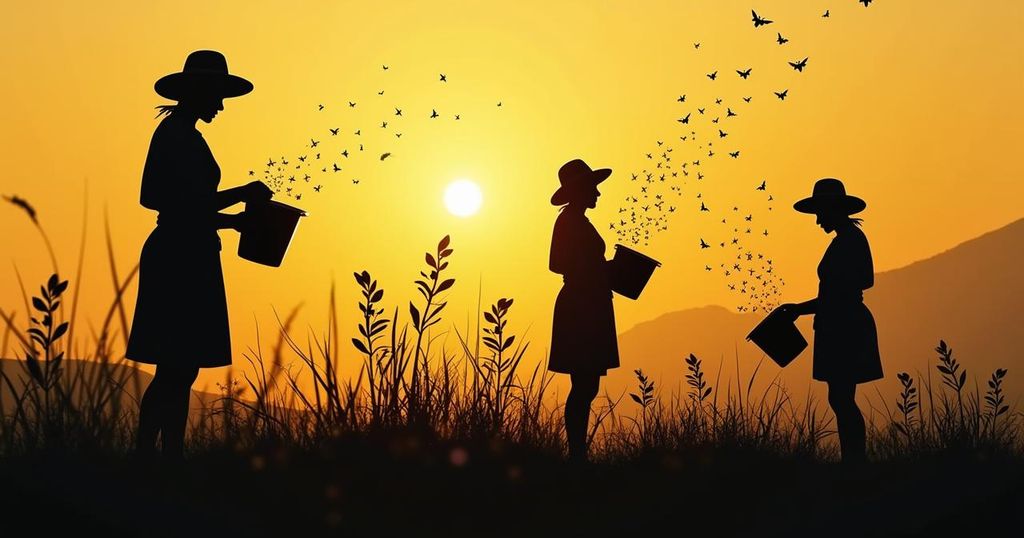Empowering Women Beekeepers: The Impact of Climate Funding in Peru
In northeastern Peru, women beekeepers have utilized UN climate funding to save their bees and livelihoods from climate change impacts. Despite heavy rainfall causing bee fatalities, they innovatively supplemented food sources and cultivated drought-resilient native flora. This initiative has fostered economic empowerment, exemplifying the critical need for inclusive climate finance in rural areas.
In the northeastern mountains of Peru, an inspiring group of women beekeepers has successfully utilized climate funds to rescue their hives and sustain their livelihoods amid challenges posed by climate change. In the village of Chilal de la Merced, situated over 2,600 meters (8,500 feet) in the Andes, the impact of climate change has been conspicuous, with extreme weather events such as heavy rains, droughts, frosts, and hailstorms significantly impacting the local ecosystem and bee populations. As of early 2022, severe rainfall had prevented bees from foraging for nectar, resulting in dire circumstances where entire hives perished from starvation. In response to this crisis, Karina Villalobos, the spokesperson for the Hojuelas de Miel beekeepers association, highlighted the urgency of action. “When we checked the hives, we found the boxes full of dead bees,” she recalled, reflecting the grave condition of their operations. Faced with the imminent collapse of their project, the women, previously assisted by a grant from Avanzar Rural—a program initiated by the Peruvian government in partnership with the United Nations International Fund for Agricultural Development (IFAD)—decided to act decisively. Despite the challenges of climate-related disruptions to flowering seasons, they created an innovative approach to sustain their bee populations. They opted to supplement the bees’ nutrition with a mixture of sugar and vitamins while simultaneously planting native flora that is resilient to adverse weather conditions. The innovative strategies funded by the $27,000 grant enhanced both their biodiversity and the sustainability of their operations. As a result, the Hojuelas de Miel association now maintains 89 beehives and generates an annual revenue of approximately $13,000, empowering the women involved both economically and socially. \n The successful integration of women in this agricultural sector underscores a critical issue within climate finance, as less than two percent of such funds are allocated to rural communities engaged in small-scale agriculture. Villalobos emphasizes the struggles faced by women, stating, “Because the owner of the land is the man, so how can we get a loan?” Therefore, the contributions of this program, which has aided over 17,000 individuals, exemplify the necessity of inclusive funding ecosystems.
The article examines the intersection of climate change and rural empowerment, particularly through the lens of women’s contributions to agricultural resilience. It centers around a group of beekeepers in Peru who have faced severe challenges due to adverse weather conditions linked to climate change but have benefited from targeted climate funding. This funding has not only helped them sustain their livelihoods but has also fostered community resilience against future climate impacts. The discourse surrounding climate financing for marginalized groups is critical, as highlighted by industry experts.
In summary, the efforts of the women beekeepers from Chilal de la Merced exemplify the power of targeted climate funding in promoting resilience and sustainability in agriculture. Despite the ongoing challenges posed by climate change, these women have demonstrated ingenuity and determination in the face of adversity. Their story highlights the importance of empowering women in rural communities, ensuring that they receive the necessary support to thrive in an ever-changing environment.
Original Source: www.france24.com




Post Comment